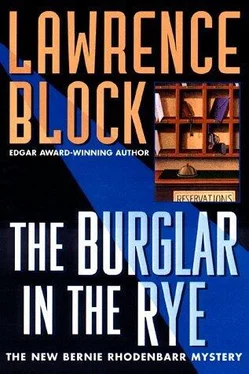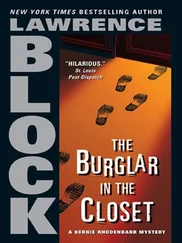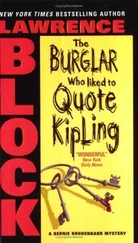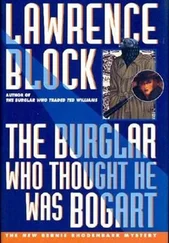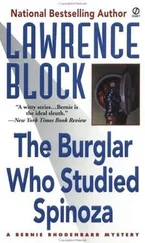I nodded. “And it’s the only thing Gully Fairborn drinks, and he evidently drinks a lot of it.”
“Well, more power to him. And it’s what she drinks, too? Alice Cottrell?”
“She also managed to put away some wine with dinner and a glass of Strega afterward. And I didn’t have any rye at my apartment, and she seemed to find my scotch perfectly acceptable. But rye’s what she drinks. That’s one lingering effect of three years with Fairborn.”
“And now you’re drinking rye,” she said, “and, come to think of it, so am I. You think there’s a trend forming here, Bern? You figure it’s going to sweep the country?”
“Probably not.”
“‘If rye whiskey don’t kill me, I’ll live till I die.’ You know that song, Bern?”
“I don’t think so.”
“Well, I’d sing it, but it’d take three or four more of these to get me in the mood. It goes ‘Jack of Diamonds, Jack of Diamonds, Jack of Diamonds I cry, If rye whiskey don’t kill me, I’ll live till I die.’”
“Why Jack of Diamonds?”
“How do I know, Bern?”
“And what kind of sense does it make, anyway? Everybody lives until they die, whiskey or no whiskey.”
“ Bern, it’s a folk song, for God’s sake. ‘Go tell Aunt Rhody the old gray goose is dead.’ Does that make any sense? Who’s Aunt Rhody? What does she care about a goose, gray or otherwise? Folk songs aren’t supposed to make any sense. That’s why they’re written by ordinary people and not by Cole Porter.”
“Oh.”
“I can’t believe you don’t know the song. Didn’t you ever have an affair with a folksinger?”
“No, and when did you…Oh, of course. Mindy Sea Gull.”
“Née Siegel. Remember her?”
“The guitar player.”
“I wouldn’t exactly call her a guitar player, Bern. She only knew three chords and they all sounded the same. She just strummed the guitar to accompany herself when she sang.” She shrugged. “She didn’t have much of a voice either, as far as that goes.”
“She had a nice little body, though.”
“That’s a hell of a thing to say, Bern.”
“Don’t tell me it was a sexist remark, because you were just about to make it yourself. ‘She didn’t have much of a voice, but she had a nifty little body.’ Isn’t that what you were going to say?”
“It’s different if I say it. You’re not supposed to notice what kind of a body she had.”
“Mindy Sea Gull? Who could miss noticing a pair of wings like those?”
“ Bern…”
“And what do you mean, I’m not supposed to notice? Because she’s gay? You notice straight women. You even hit on them, and sometimes you get lucky.”
“Short-term lucky, Bern. Long-term miserable. And not because Mindy was gay. You weren’t supposed to notice her neat little body because she was my girlfriend.”
“Oh.”
“But she’s not anymore,” she said, drinking her drink, “and you’re right, she had a set of wings on her that could fly you to the moon, so the hell with it. How about you?”
“No wings to speak of.”
“I meant how about you and Alice Blue Gown. You get lucky?”
I lowered my eyes.
“ Bern?”
“A gentleman never tells,” I said.
“I know, Bern. That’s why I picked you to ask instead of Prince Philip. So? How’d you make out?”
When a woman invites herself to your place, a flop in the feathers seems like a foregone conclusion. But I wasn’t about to jump to it. We’d spent most of the evening talking about her affair with another man, a man who just happened to be a legendary figure of mystery and romance, and what kind of prelude is that for a game of slap and tickle?
So, when I picked out music to play, I left my Mel Tormé record on the shelf. It’s got an amazing track record, but in this instance I wasn’t sure it was appropriate.
While Coltrane played for us, she told me some more about Gulliver Fairborn. How he would reinvent himself every couple of years, taking a new name, adopting a new lifestyle, moving to a new part of the country. It was easy for him to remain undiscovered, she explained, because nobody knew what he looked like, and thus no one would be able to recognize him at the gas station or the supermarket. He paid cash for most of his purchases, and when he had to write a check, it was in whatever name he was using at the time, and he’d have a wallet full of ID to back it up.
And he didn’t socialize, didn’t make friends. “We kept to ourselves,” she said. “It was easy enough, living out in the country like that. He’d get up first, before daybreak, and he’d get the day’s writing done before breakfast, which he always cooked for us. Then we’d hang out. We took a lot of long walks, we went for drives, we paid a few visits to different Indian pueblos. He got very interested in San Ildefonso pottery and found out who was the best potter in the pueblo. We spent a couple of hours with her and he wound up buying a little round bowl that her mother had made. We brought it home to Tesuque and he put it on a table and recited the Wallace Stevens poem about placing a jar on a hill in Tennessee. You know the poem?”
I nodded. “But I’m not sure I know what it means.”
“Neither do I, but it seems to me I did then. I still have the bowl, or jar, or whatever you want to call it.”
“He bought it for you?”
“He left it for me. The day I moved in he told me he wanted me to stay as long as I wanted, and that he hoped I would never leave him. But that he would leave me.”
“He told you that?”
“He stated it as a fact. The sky is blue, ontogeny recapitulates phylogeny, and the day will come when you’ll wake up and I’ll be gone.”
“It could be a country song,” I said, “except that ontogeny recapitulates phylogeny would be tough for Garth Brooks to sing with real conviction.”
“And then one morning I woke up,” she said, “and he was gone.”
“Just like that? You never saw it coming?”
“Maybe I should have, but I can’t say I did. In fact at first I didn’t know he was gone. He’d left the car and all but the clothes on his back. He’d mailed off the manuscript of his book just a couple of weeks earlier. I thought he’d gone for a walk before breakfast-he did that sometimes. Then I found the note.”
“‘It’s been great fun, but it was just one of those things.’”
“Actually, that’s close. It was from Swinburne. ‘One love grows green, one love turns gray. Tomorrow has no more to say to yesterday.’”
“That’s a lot clearer than Wallace Stevens.”
“It didn’t leave me wondering. And there was a PS, which I used to know by heart, but I got over it. He said to stay as long as I wanted, and that the rent was paid through the end of June, which was about six weeks off. There was some cash in the top dresser drawer along with a ticket to New York; I could use the ticket or cash it and go somewhere else. I could do what I wanted with everything in the house. He’d signed the car registration over to me, and the title was in the glove compartment, so I could drive it or sell it, whatever I wanted.”
“Could you drive? Last I heard you were fourteen.”
“I was seventeen by this point, but no, I hadn’t gotten around to learning. I was going to ask a neighbor to drive it to a dealer so I could sell it, but in the end I just left it there, along with just about everything else. I packed the suitcase I’d brought from Greenwich, and I took the black San Ildefonso pot, wrapping it in my clothes so it wouldn’t break. And it didn’t. I still have it.”
“And you flew back to New York?”
“Almost. I took a bus to the airport and got a boarding pass. Then when they called my flight I didn’t get on it. I just picked up my bag and walked out of the terminal. I suppose there was a way to cash in my ticket, but it just felt like too much of a hassle. I had enough money left for a ticket to San Francisco on Greyhound, and that’s where I went.”
Читать дальше
